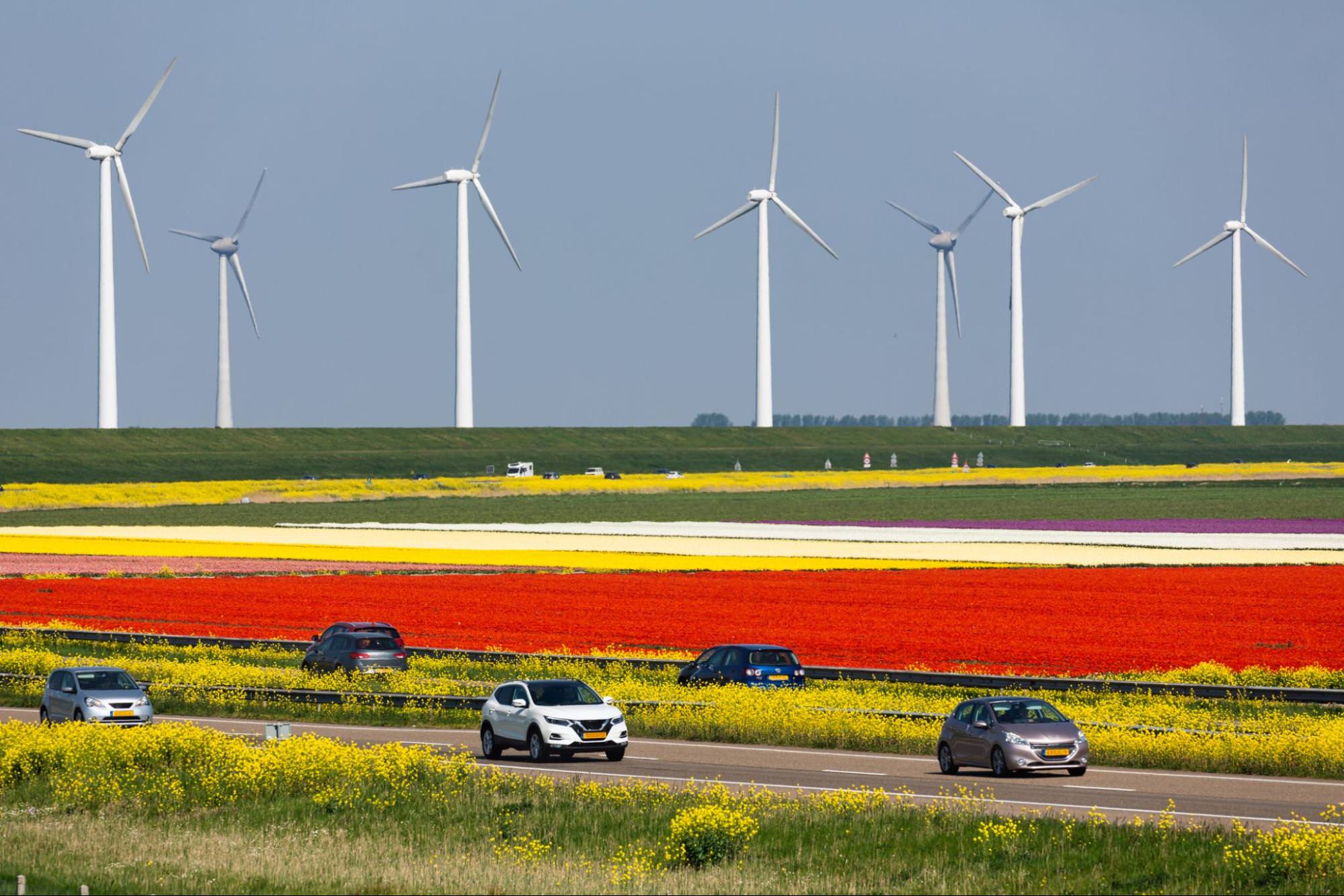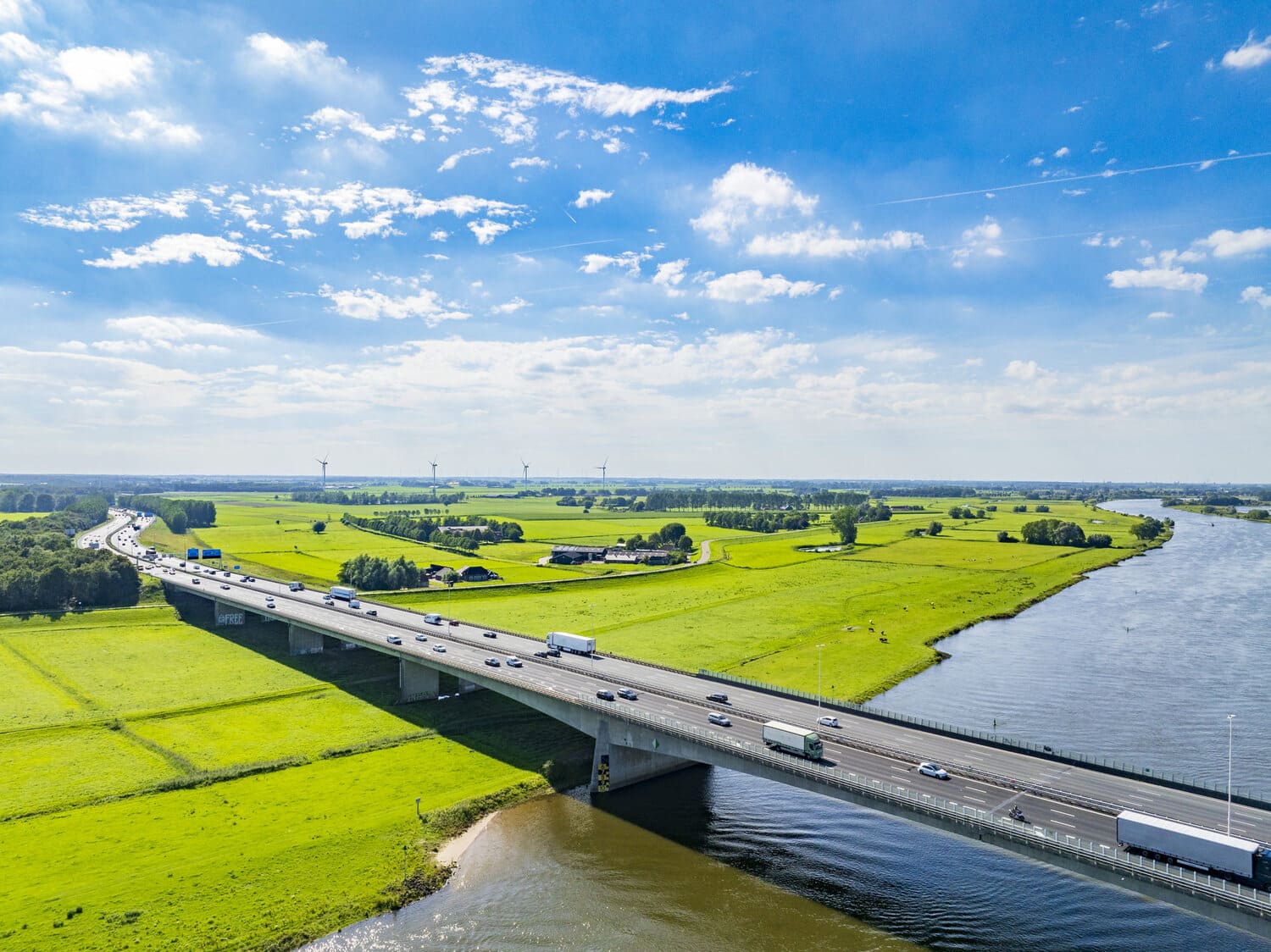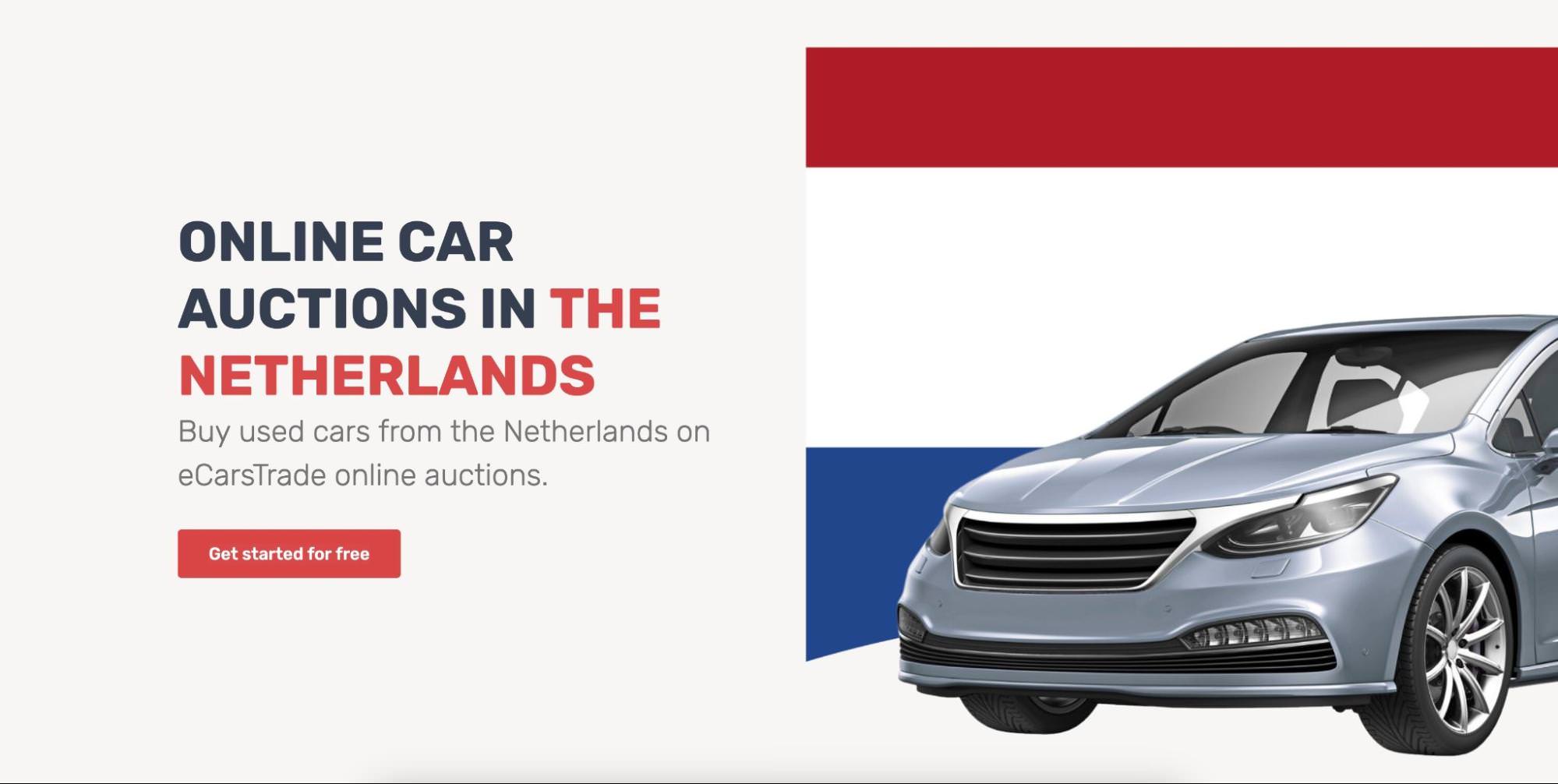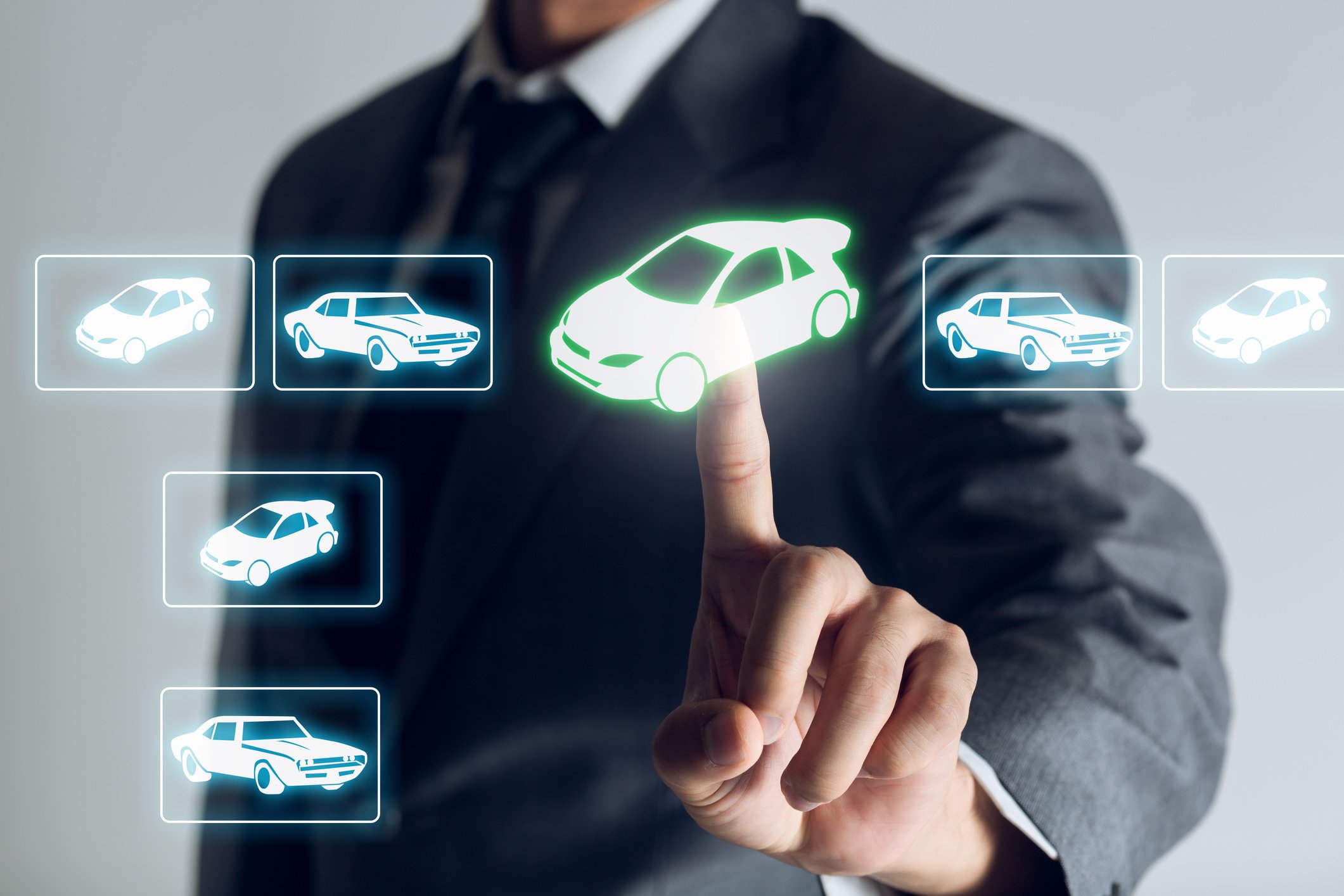- Blog
- Imposto BPM nos Países Baixos - O que é e como é calculado?
Imposto BPM nos Países Baixos - O que é e como é calculado?
Saiba mais sobre o imposto BPM nos Países Baixos: o que é, como é calculado e porque é importante para os comerciantes de automóveis. Descubra como a eCarsTrade simplifica o processo.

Como comerciante de automóveis a operar nos Países Baixos, é provável que se depare regularmente com o imposto BPM.
O imposto BPM é um fator chave na determinação do preço final dos veículos no mercado holandês. Pode fazer uma diferença substancial na sua estratégia de preços e afetar os veículos que são mais rentáveis para importar ou vender.
Vamos aprofundar o que é o imposto BPM, como é calculado e como a eCarsTrade ajuda os comerciantes de automóveis com este imposto.
O que é o BPM?
BPM, ou "Belasting van Personenauto's en Motorrijwielen" é um imposto sobre veículos motorizados privados e motociclos nos Países Baixos.
Ao contrário dos custos contínuos, como o imposto de circulação, o BPM é um pagamento único feito quando um veículo é registado pela primeira vez nos Países Baixos.
O imposto foi concebido para incentivar a utilização de veículos mais ecológicos. Isto significa que, como comerciante de automóveis, poderá encontrar taxas de BPM mais favoráveis em veículos de baixas emissões, como eléctricos ou veículos híbridos.
Embora o BPM seja frequentemente associado a veículos novos, também se aplica a carros usados que são registados nos Países Baixos pela primeira vez.
Veículos sujeitos ao imposto BPM
Que veículos são afectados pelo BPM? Vamos dar uma olhadela.
- Carros de passageiros: Esta é a categoria mais comum e inclui tudo, desde carros urbanos compactos a sedans de luxo. O BPM nos automóveis de passageiros pode variar drasticamente com base em factores como as emissões de CO2 e o tipo de combustível.
- Motociclos: O método de cálculo para os motociclos difere do dos automóveis, baseando-se frequentemente no preço de venda e não nas emissões.
- Vans: Veículos comerciais como carrinhas estão sujeitos a BPM, mas existem algumas isenções e diferentes métodos de cálculo, dependendo da sua utilização e configuração.
- Campervans: Estes veículos podem ser elegíveis para uma taxa de BPM mais baixa em comparação com os veículos de passageiros se cumprirem determinados critérios.
- Camiões: sujeitos à taxa BPM apenas se forem utilizados principalmente para o transporte de passageiros
 Como é que a eCarsTrade ajuda os comerciantes de automóveis com BPM
Como é que a eCarsTrade ajuda os comerciantes de automóveis com BPM
Na eCarsTrade, compreendemos os desafios que o BPM pode colocar aos comerciantes de automóveis que estão a comprar automóveis holandeses.
É por isso que desenvolvemos um sistema único para simplificar o processo e reduzir os custos para os nossos clientes.
Aqui está como ajudamos!
Fazemos parceria com um importador especializado que cuida de todos os aspectos burocráticos do pagamento do BPM.
O nosso importador paga ele próprio o BPM, envia os carros para a Alemanha, regista-os lá, e recupera o BPM.
É por isso que a maioria dos veículos usados holandeses que oferecemos vêm com documentos alemães, o que agiliza significativamente o processo.
Este acordo oferece várias vantagens aos nossos clientes:
- Preço simplificado: Os nossos clientes pagam apenas o preço líquido do veículo. Não têm de se preocupar em calcular ou pagar o BPM eles próprios.
- Tratamento do BPM: O nosso importador trata do pagamento das BPM. Eles registam o carro na Alemanha e depois reclamam o BPM, eliminando este custo para os nossos clientes.
- Processo económico: Gerimos todo o processo para evitar taxas desnecessárias, garantindo que os nossos clientes obtêm o melhor preço possível.
- Cronograma transparente: Devido a este processo, os automóveis provenientes dos Países Baixos demoram normalmente cerca de 20 dias úteis a chegar ao nosso parque de estacionamento na Bélgica. Embora isso possa parecer mais longo do que as importações diretas, é uma troca que resulta em economia significativa de custos e redução de papelada para nossos clientes.
Este sistema permite que os comerciantes de automóveis se concentrem no que fazem melhor - comprar e vender carros - sem ficarem presos em cálculos e pagamentos complexos de impostos.
Ao tratar do processo BPM através do nosso importador especializado, conseguimos oferecer preços competitivos e uma experiência sem complicações aos nossos clientes.
O seu carro terá um tempo de entrega um pouco mais longo para a Bélgica, mas a economia de custos e o trabalho administrativo reduzido tornam-no uma escolha popular entre os nossos clientes.
Nota importante! Se vir o BPM mencionado em qualquer lugar numa listagem de carros, isso deve-se ao facto de as informações sobre o carro serem sincronizadas entre o fornecedor e a nossa plataforma. Como cliente da eCarsTrade, pagará sempre o preço líquido e o BPM nunca é calculado em cima.

Quando é que se deve pagar as BPM?
Os clientes da eCarsTrade não têm de se preocupar com as BPM!
No entanto, para os comerciantes que trabalham com outras plataformas de leilão, entender quando o BPM é devido é crucial para as suas operações comerciais.
Vamos aprofundar as situações em que vai encontrar pagamentos de BPM:
- Importação de veículos: Sempre que importar um veículo do estrangeiro para o vender no mercado neerlandês, terá de pagar BPM. Isto aplica-se tanto a veículos novos como a veículos usados que não tenham sido registados nos Países Baixos anteriormente.
- Primeiro registo: Terá de pagar BPM para veículos que estão a ser registados nos Países Baixos com o RDW pela primeira vez.
- Modificações de veículos: Se modificar um veículo de forma a alterar a sua classificação BPM, poderá ter de pagar BPM adicionais.
- Compras de veículos de aluguer: Se estiver envolvido na venda de veículos de ex-locação que anteriormente estavam isentos de BPM devido ao seu estatuto de locação, terá de pagar BPM quando estes veículos forem vendidos a proprietários privados.
- Veículos de demonstração: Quando converte um veículo de demonstração do seu showroom num veículo para venda, poderá ter de pagar BPM se este não tiver sido pago inicialmente.
- Restauro de carros clássicos: Se está no ramo do restauro de carros clássicos, tenha em atenção que os restauros extensos podem, por vezes, levar a uma responsabilidade de BPM, especialmente se o restauro alterar significativamente as características do veículo.
- Carros de kits e veículos de construção própria: Se montar veículos a partir de kits ou construir veículos personalizados, a BPM é devida quando estes veículos são registados para utilização na estrada.
- Veículos que regressam aos Países Baixos: Se um veículo que foi anteriormente exportado dos Países Baixos for trazido de volta e registado novamente, o BPM pode ser devido, dependendo das circunstâncias.
Existem isenções fiscais de BPM?
Existem várias isenções fiscais BPM que deve conhecer enquanto comerciante de automóveis.
Se está a comprar um carro da eCarsTrade, não precisa de se preocupar com o BPM, mas vamos ver algumas isenções que podem ser interessantes para os comerciantes de automóveis em geral:
- Os veículos totalmente eléctricos estão atualmente isentos de BPM. Como comerciante, armazenar veículos eléctricos pode ser uma forma de oferecer aos clientes opções com custos iniciais mais baixos.
- Os veículos concebidos principalmente para o transporte de mercadorias, como as carrinhas de entregas com uma área de carga separada, podem estar isentos da BPM.
- Veículos importados temporariamente (geralmente até 6 meses) também podem estar isentos de BPM. Isto pode ser relevante se estiver envolvido na organização de feiras de automóveis ou no fornecimento de test drives alargados para veículos topo de gama.
- Se exportar um veículo dos Países Baixos dentro de um determinado período de tempo após a importação, pode ser elegível para um reembolso de BPM.
Para poder beneficiar de uma isenção, um veículo pode ter de cumprir determinadas especificações técnicas ou ser utilizado de uma forma específica.
Como é calculado o imposto BPM?
O cálculo da BPM difere consoante o tipo de veículo.
Para os veículos de passageiros, depende das emissões de CO2. O imposto aumenta progressivamente com emissões mais elevadas. Para 2024, a taxa de base começa em €400 para veículos que emitem 1-82 g/km de CO2, com encargos adicionais para cada grama acima desse limite.
Os veículos a gasóleo estão normalmente sujeitos a uma taxa-base mais elevada devido a uma sobretaxa de gasóleo.
Para alguns tipos de veículos, como motocicletas, o BPM é baseado no valor do veículo'em vez de emissões.
Para os veículos usados, é aplicado um fator de depreciação para reduzir o BPM. Este é calculado com base na idade do veículo e pode reduzir significativamente o imposto para veículos mais antigos.

A nossa página dos leilões de automóveis online nos Países Baixos que permite aos comerciantes licitar veículos holandeses usados
Conclusão
Navegar as complexidades do imposto BPM é uma habilidade crucial para os comerciantes de automóveis nos Países Baixos.
BPM é uma parte integrante do mercado automóvel holandês. Quer esteja a importar veículos, a aconselhar clientes ou a planear o seu inventário, um conhecimento profundo do BPM irá servir-lhe bem para navegar com sucesso no mercado automóvel holandês.
Lembre-se, trabalhar com a eCarsTrade elimina todas as preocupações quando se trata de BPM. Aumente o seu inventário de carros com leilões de carros de alta qualidade da Holanda sem problemas de BPM!
Importar veículos da Europa pode ser complexo, mas a eCarsTrade está aqui para simplificar o processo. Aprenda como preencher um formulário CMR para transporte internacional, e descubra o processo passo-a-passo para importar um carro para Itália, Portugal, Alemanha, Espanha ou França.

